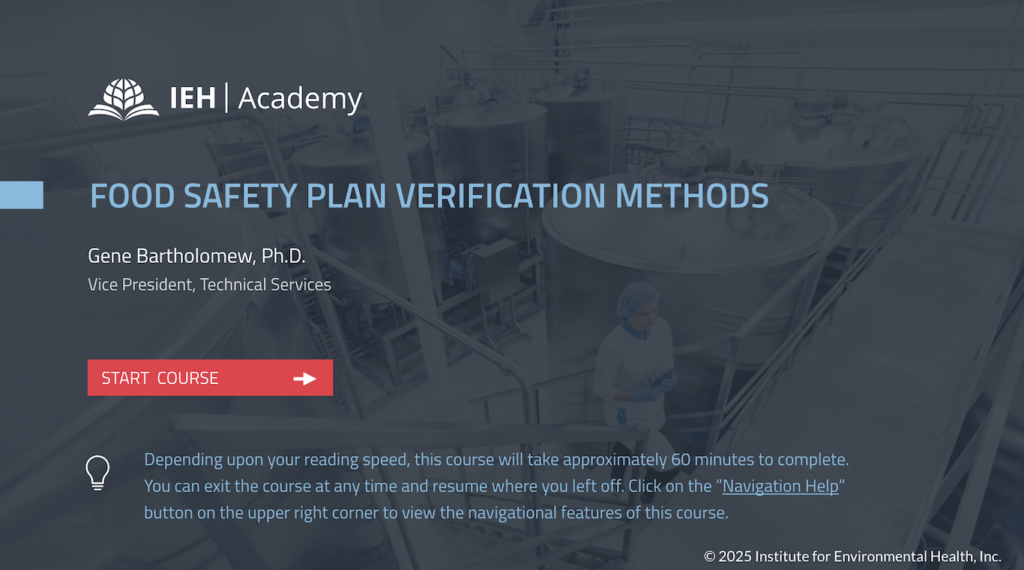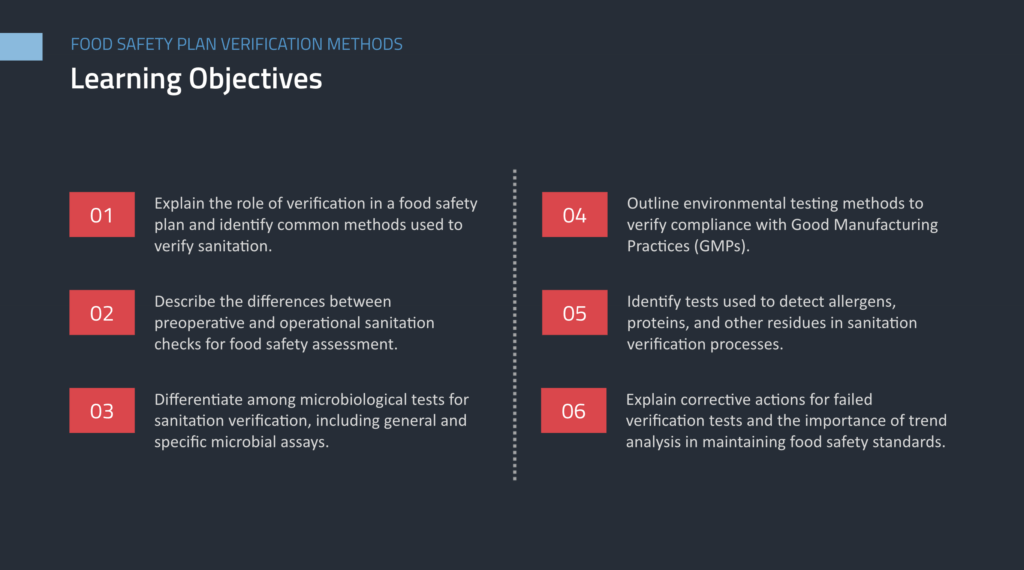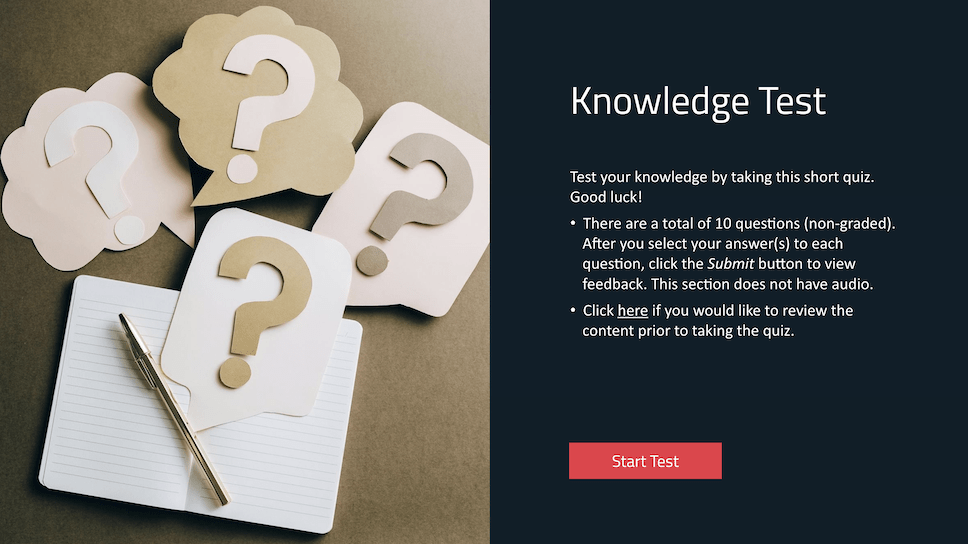Food Safety Plan Verification Methods
Course details
Self-Paced eLearning
99.00
1 Hour
Dr. Gene Bartholomew
Sanitation verification is at the heart of food safety and quality. This course covers the most effective verification methods, including visual inspections, chemical and microbiological testing, and ATP testing. These methods are critical for maintaining both preoperative and operational sanitation standards, ensuring their effectiveness and safety throughout each stage of production.
Benefits and Learning Objectives
Participants will develop the expertise to address challenges in training, documentation, and corrective actions, strengthening food safety programs to meet regulatory requirements and customer standards.
- Understand the role of verification in a food safety plan and identify common methods used to verify sanitation.
- Recognize the differences between preoperative and operational sanitation checks in food safety assessments.
- Differentiate between general and specific microbiological tests for sanitation verification.
- Outline environmental testing methods to ensure compliance with Good Manufacturing Practices (GMPs).
- Identify tests used to detect allergens, proteins, and residues in sanitation verification.
- Define corrective actions for failed verification tests and the importance of trend analysis in food safety.



Agenda:
- Define validation and verification in food safety.
- Differentiate between validation and verification activities.
- Outline the steps for implementing effective processes.
- Review real-world examples in HACCP and sanitation programs.
- Examine regulatory requirements and their applications.
- Discuss the importance of scientific support in compliance efforts.
Who Should Attend?
- Food Safety Managers
- Quality Assurance Specialists
- Sanitation Supervisors
- Compliance Officers
- Regulatory Affairs Professionals
- Microbiologists and Lab Technicians
- Production Managers
- Professionals involved in food safety, sanitation, or compliance
Registration and Payment
To register for this course, please visit our training portal.

-
Vice President, Technical Services
IEH Laboratories & Consulting Group
Meet the Instructor
Dr. Gene Bartholomew
Dr. Gene Bartholomew joined IEH as Vice President of Technical Services in 2019. He earned an M.S. and Ph.D. in microbiology from Cornell University and a B.S. in biology from Bucknell University. Dr. Bartholomew began his professional career at International Paper in 1983 as a research scientist. During his 15 years there, he commercialized and validated an aseptic packaging system, managed a beverage pilot plant and its laboratory, started taste panel testing for the company, and advanced to manage several products, and development groups.
Dr. Bartholomew then joined Smithfield Foods Packaged Meats. He started in the John Morrell Group as the corporate director of food safety for 7 meat processing and slaughter facilities and 1 spice plant. He later took on the role of Senior Director of Corporate Food Safety, during which he was responsible for 14 meat processing plants and several FDA-regulated plants. Throughout his 20-year career at Smithfield, he led HACCP plan design and validation, thermal processing, regulatory compliance, sanitation, allergen control, and environmental pathogen monitoring. He also managed a corporate microbiology laboratory and its accreditation, has certifications in HACCP training, BRC, and SQF schemes, and is a Preventive Controls Qualified Individual.
Dr. Bartholomew was a founding member of the North American Meat Institute Listeria Control Workshop and has taught numerous courses to members of the food industry.

-
Executive Vice President
IEH Laboratories & Consulting Group
Carol Cave
Ms. Carol Cave joined IEH as the Executive Vice President in 2024, bringing with her extensive expertise in regulatory affairs and consumer protection. She holds a B.S. in Consumer Economics from the University of Maryland.
Before joining IEH, Ms. Cave served as the Acting Associate Commissioner (ACRA) for the Office of Regulatory Affairs (ORA) at the Food and Drug Administration. In this role, she oversaw approximately 5000 ORA employees stationed across the U.S. and around the world.
Prior to her role as Acting ACRA, Ms. Cave served as Deputy Associate Commissioner, where she managed inspections, compliance, enforcement, field laboratory operations, import operations, and strategic planning.
Earlier in her career at the FDA, she served as the Assistant Commissioner of Import Operations, where she led the Office of Enforcement and Import Operations, ensuring FDA-regulated imported products comply with U.S. laws. Ms. Cave also led coordination efforts between the FDA and U.S. Customs and Border Protection, developing joint regulations, policies, procedures, and operations.
Before her tenure at the FDA, Ms. Cave was the Deputy Director of the Office of Compliance and Field Operations at the U.S. Consumer Product Safety Commission (CPSC). In this role, she collaborated with federal government agencies to identify potentially defective consumer products. With nearly 26 years at the CPSC, Ms. Cave held various leadership positions, including Director of State and Local Programs and Assistant Executive Director for the Office of Import Surveillance, ensuring the safety of consumer products nationwide.